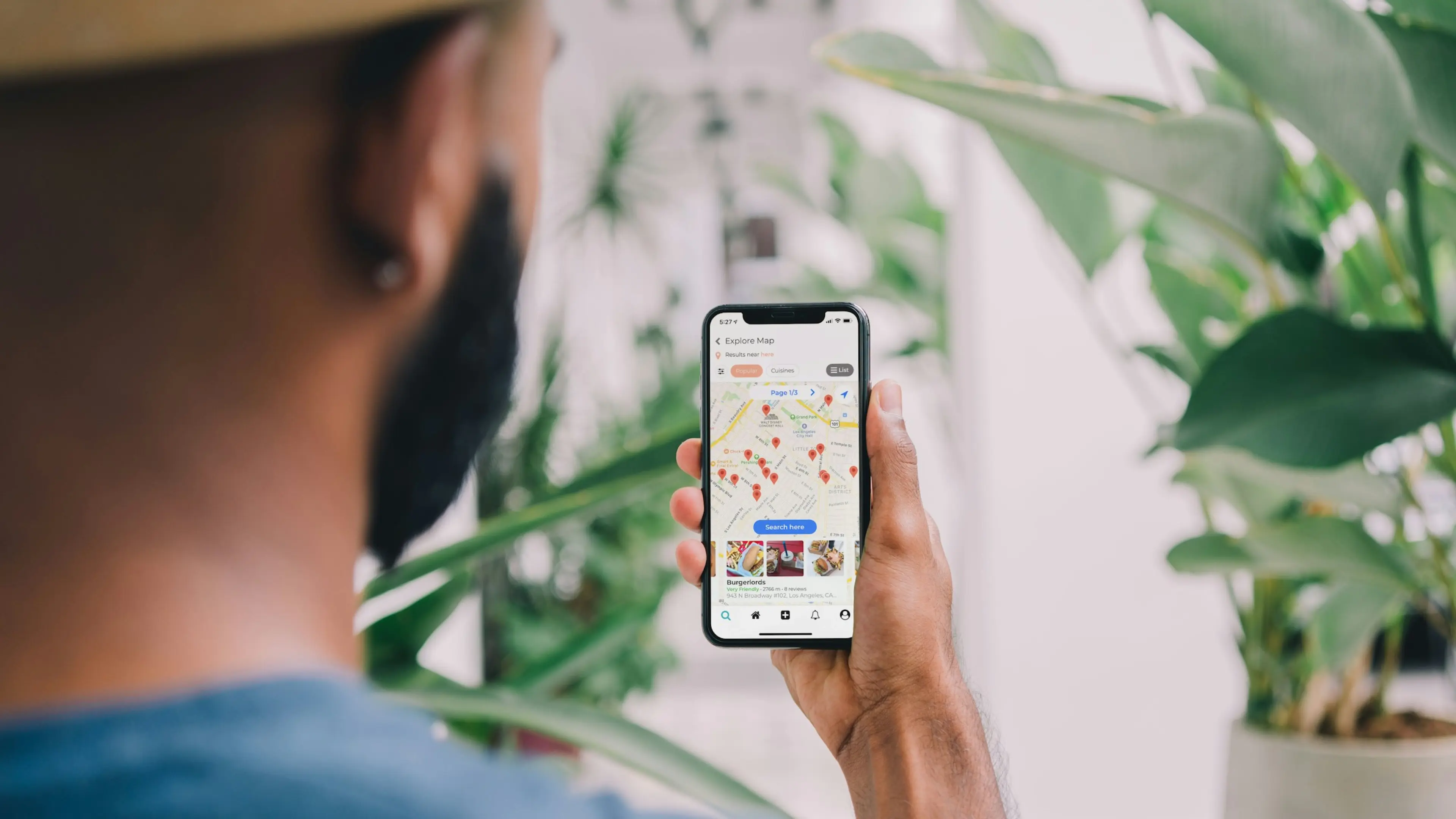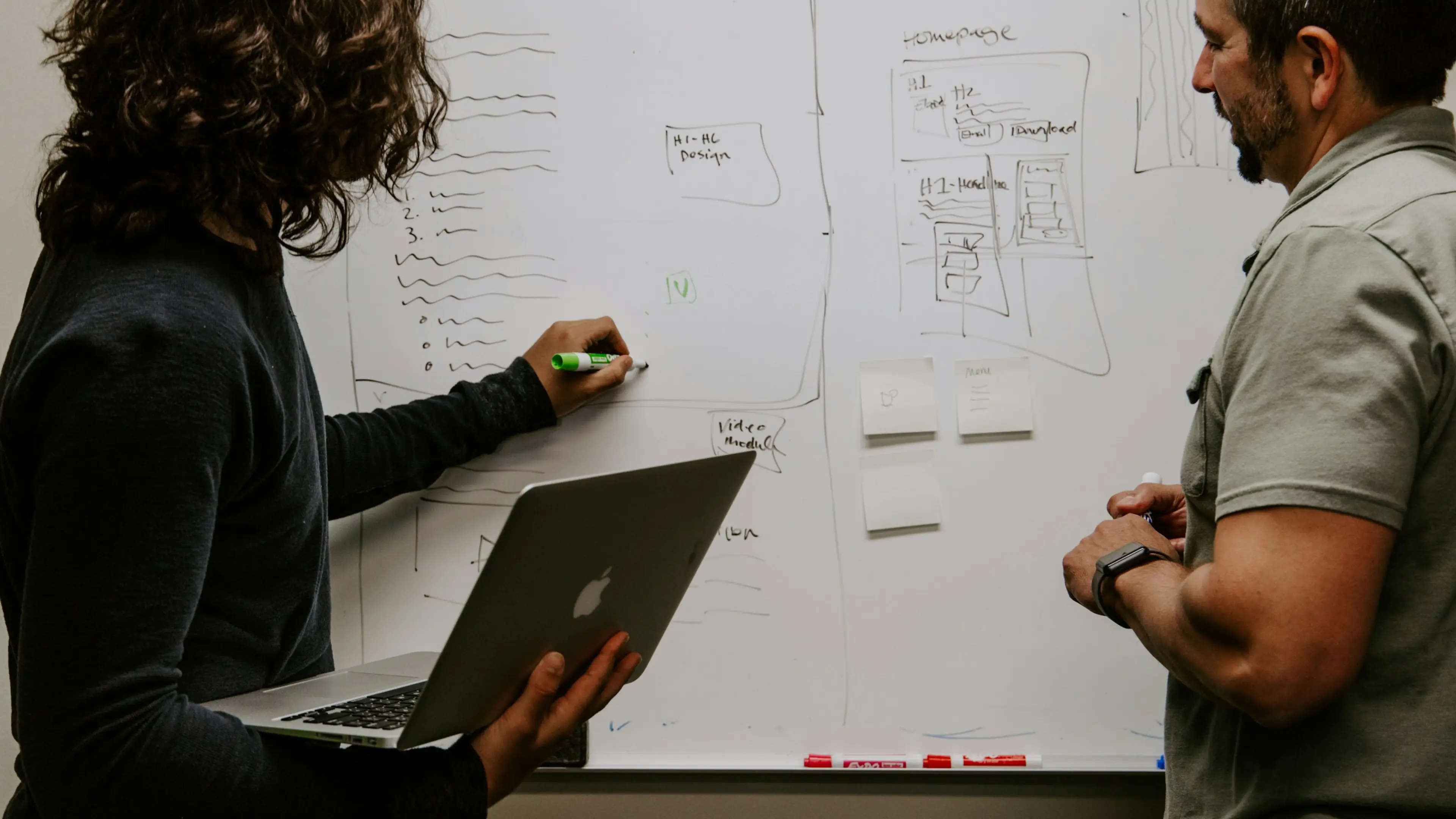16 September 2022 (updated: 19 July 2024)
9 Telehealth Applications Examples to Draw Inspiration From
Chapters

Telemedicine is on the rise. If you’re thinking about launching your own telemedicine app, it’s worth taking note of what’s hot on the market and how it can improve healthcare delivery. We asked 9 experts about their top telemedicine app picks so you don’t have to.
The U.S. Department of Health & Human Services reports that in 2021, there has been a 63-fold increase in the number of consultations offered via apps for doctors’ appointments. While this number is certainly impressive, it’s hardly surprising. After all, the pandemic has made it clear to both institutions and patients alike that online medical care is a viable option.
If you’re looking to launch your own telemedicine app, then it’s worth inspiring yourself with some of the more innovative or popular solutions currently on the market. We’ve reached out to the tech & telehealth community, asking them for their opinion on the best telemedicine examples. Here’s what they’ve shared:
Teladoc – doctors are available 24/7

Luke Lee, Co-Founder of Ever Wallpaper
I love the Teladoc app because it's convenient and easy to use. Healthcare professionals play a crucial role in providing 24/7 access to medical advice and treatment through the app. I can get medical advice and treatment without having to go to the doctor’s office or hospital. The Teladoc app provides access to board-certified doctors 24/7, so I can get help anytime, day or night. And since there’s no need to schedule an appointment, I can usually get an immediate response from a doctor. Plus, the Teladoc app is free to download and there are no hidden fees.
Lemonaid – same-day telehealth services
Josh Snead, CEO at Rainwalk Pet Insurance
One of the best examples of telemedicine apps for same-day online care is Lemonaid. It offers a simple way to get a diagnosis and receive treatment by providing a wide range of medical services remotely. You pay a $25 doctor consultation fee and obtain access to free delivery from the Lemonaid Pharmacy. Once you pay your fee, you'll get a doctor's review within 24 hours. Some states may also require a video consultation. The prescription can then be sent to a local pharmacy or delivered directly to your door.
Doctors on Lemonaid can prescribe medications for birth control, depression and anxiety, urinary tract infections, high blood pressure, and others. It's a great way to receive medical care without having to set foot in an office or wait for an appointment.
PayZen – healthtech combined with fintech
Toni Nasr, Fintech Analyst at Investing in the Web
I was doing a feasibility study for a healthcare fintech company in the MENA region, and while checking competitors, I found several attractive companies, but I think the best one is PayZen.
PayZen focuses on combining healthcare and fintech solutions to improve healthcare affordability. It integrates financial technology, artificial intelligence, and machine learning on one platform to serve patients and healthcare service providers. Gathering and processing health data is crucial in telehealth systems to ensure effective and secure patient care. Using AI analysis of more than 30K data points, PayZen claims to provide its services to all patients by offering each one a customized plan in the most cost-effective way.
It has a "Care Now, Pay Later" business model as it provides patients with a payment option so that they won't have to postpone any treatment. At the same time, it provides funding for healthcare providers. Thus, decreasing operational work, increasing the time allocated to productive work, and increasing collection rates. Fintech and healthcare, in my opinion, should always be integrated for a successful telemedicine application.
JASE Medical – online consultations and immediate prescriptions
Magda Ziółkowska at JASE Medical
Another telemedicine example worth mentioning is JASE Medical:
It’s a one-of-a-kind service developed in partnership with world-class medical experts, that offers U.S. and Canadian residents the opportunity to consult with a doctor online and obtain emergency antibiotics in advance of travel, or in case of emergency when we have no access to healthcare. Addressing chronic diseases through telehealth services is crucial, as it allows for continuous management and monitoring, especially when in-person visits are not feasible.
Take travel for example. It is a beautiful adventure. But what if you find yourself on vacation in the middle of the woods with an infected ear, animal bite, or a scratch with no access to a doctor? Such common infections, without quick antibiotic treatment, can become serious. Making sure you’re prepared for the unexpected with an emergency stockpile of antibiotics and chronic meds can literally save your life and money.
Through a quick and easy online visit with one of the physicians from their nationwide network, JASE Medical offers access to basic emergency medications for every family in America. The process is quick and easy. You fill out their simple online form for an evaluation from a board-certified physician and a few days later your JASE Case will be delivered to your front door. The JASE Case contains a long-term supply of standard antibiotics – Amoxicillin-Clavulanate, Azithromycin, Ciprofloxacin, Doxycycline, and Metronidazole to treat the most common as well as most deadly bacterial infections.
MyChart – quick access to medical records

Max Benz, Founder and CEO at BankingGeek
MyChart is a telemedicine app that was developed by Epic Systems Corporation. The app allows patients to access their medical records, schedule appointments, and message their care providers. MyChart also offers a variety of other features, such as the ability to refill prescriptions and pay bills. Additionally, MyChart securely manages patient data, enabling healthcare providers to gather and access vital signs and medical information remotely.
MyChart is just one example of a telemedicine app that can be used to improve patient care. Other telemedicine apps include HealthTap, which offers video consultations with doctors, and MDLIVE, which provides 24/7 access to doctors via phone or video chat. Telemedicine apps offer a convenient way for patients to receive care, and they have the potential to transform the healthcare industry.
Doctor on Demand — integrated with major insurance plans

David Gu, CEO and Designer at Neutypechic
There are many great examples of telemedicine apps on the market that can be extremely beneficial for patients. One such app is Doctor on Demand, which allows patients to connect with licensed doctors and mental health professionals from the comfort of their own homes. Doctor on Demand offers a range of mental health services, including capabilities for addressing anxiety, stress, depression, and eating disorders. This can be extremely beneficial for those who live in rural areas or have difficulty accessing medical care.
Additionally, Doctor on Demand offers a variety of services such as primary care, urgent care, behavioral health, and more. This makes it a great option for patients who need multiple types of medical care. Another great thing about this app is that it accepts most major insurance plans, making it affordable for many people.
HealthTap – access to over 50,000 specialists in the U.S.
Jennifer Chesak, Co-founder & Personnel Supervisor at iComo LATAM
Patients are always concerned about getting a second opinion. We live in an age of information overload, and what you find online is sometimes not very reliable. Where to turn? HealthTap connects with more than 50,000 doctors and dentists across the country to get answers to medical questions.
HealthTap also provides a broader scope of remote healthcare services, including non-clinical services like provider training, administrative meetings, and continuing medical education, in addition to clinical services. Users can search for topics of interest or ask a questions on their own. Doctors will respond and review each other's answers for accuracy, so you can get a variety of opinions and seek consensus. Remote care apps allow patients to get in touch with a doctor more quickly and easily, avoiding unnecessary trips to the doctor's office.
PlushCare – a doctor’s appointment app with smooth navigation & a soft learning curve

Joshua Rich, CEO & Founder at Bullseye Locations
What makes PlushCare a great telemedicine app is its smooth navigation. You can actually tell how user-friendly the app is by checking its ratings. The Plushcare app allows users to easily book appointments with doctors with just a few clicks; you just need to choose an appointment, add insurance information, and get connected to a doctor.
In addition to fewer complications, the application is well built to only have the very minimum connectivity issues that help a patient and doctor communicate effectively.
Emerest Health – filling the niche for telehomecare and remote patient monitoring for the elderly

Josh Klein, CEO at Emerest Health
Emerest Connect is a telemedicine app that focuses on healthcare or housebound patients. The concept of building out the remote telemedicine platform resulted from the pandemic, with many patients struggling with access to doctors or being refused onsite care. Remote patient monitoring (RPM) plays a crucial role in telehomecare by using wearable devices to monitor patient's medical state remotely and transmit vital data to healthcare providers.
Emerest Connect enables patients to contact Emerest's healthcare staff 24/7. The platform is delivered via an easy-to-use Samsung tablet and provides live nursing, on-call ambulance, and remote monitoring of vital signs. Emerest Connect prioritizes patients' mental health with access to social workers who communicate directly with patients via video chat.
As a result of the new way of interacting with their patients, Emerest Connect has documented a considerable level of ER avoidance. They report that, as of 2022, more than 1,000 patients use Emerest Connect within New York's five boroughs. They also mention the use of Emerest
Connect has reduced hospitalization rates among users by more than 50%.
Summary
The telehealth services examples discussed above are just a few of the thousands of successful solutions out there. This, however, doesn’t mean that the market is oversaturated, quite the opposite – there is still a lot of room for growth. Accessing and offering healthcare services remotely is well on its way to entering the mainstream!
If you’re thinking of launching your own telehealth app, then inspiring yourself with these and other successful platforms is a good starting point. Throughout your healthcare app development process, be sure to stay on top of the latest consumer and healthcare trends, as these will help you stand out from the crowd.
Check out also
- 8 Trends in Telehealth App Development for 2022 — Telehealth demand grew exponentially during the pandemic, but the advancements are not stopping with it. See 8 telehealth trends in app development for 2022.
You may also like

Native vs Cross-Platform App Development: Which is Right for Your Business
3 September 2024 • Maria Pradiuszyk




